OCTOBER 1, 2022 BY DR. DILIP AMIN
A recent 2022 The Global Faith and Media Study by HarrisX showed Nigeria and India were the top most faithful countries with 94% and 90% highly faithful people, respectively. Here we report a subset of data analyses according to which 89% of the Hindus fall in the more faithful category.
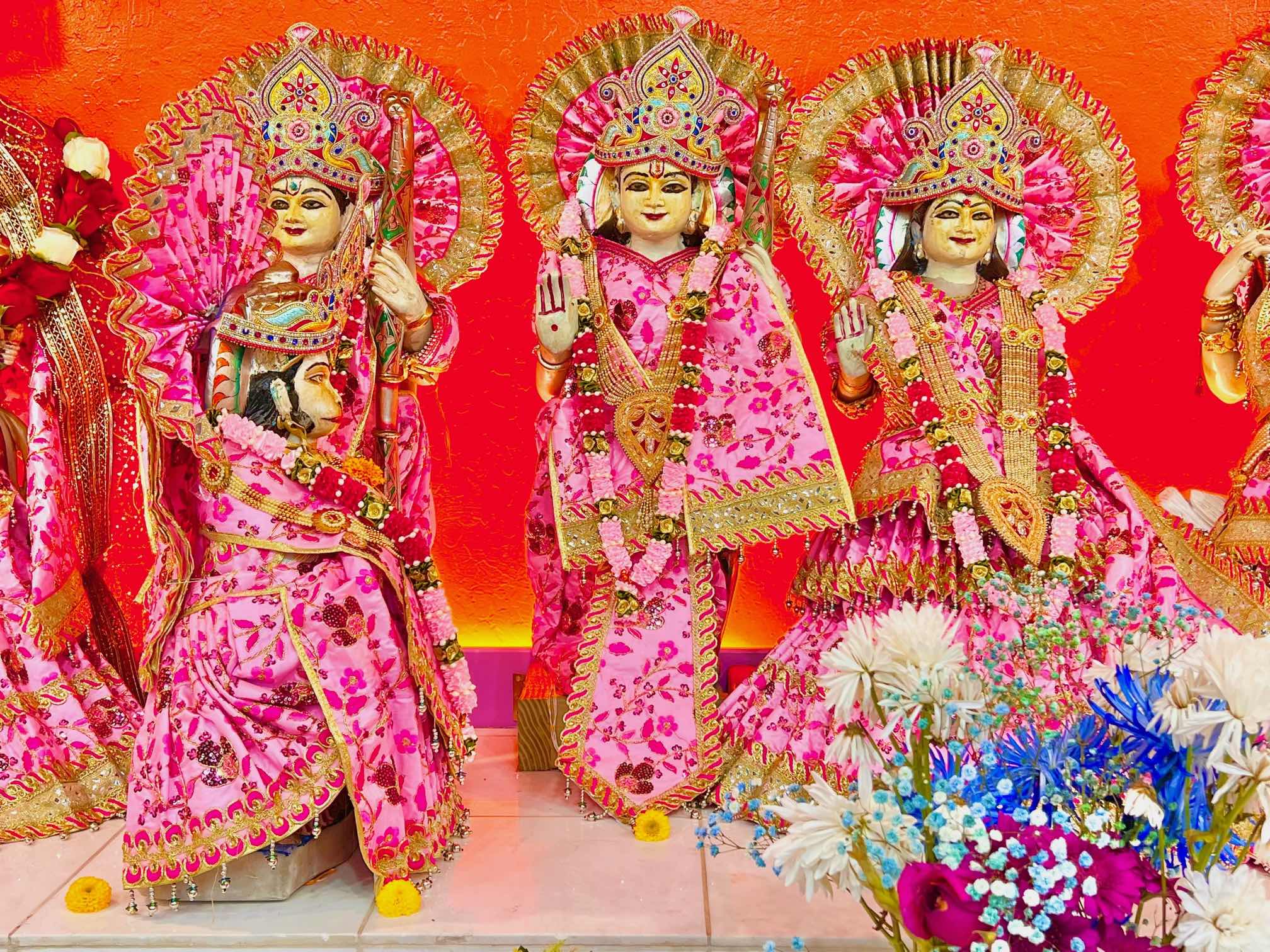
How was the survey conducted?
The survey, roping in 9489 responders worldwide, covered 18 countries, with interviews being conducted in six different languages in accordance with the linguistic propensity of the region. One of the questions in the study was, “to what degree do you consider yourself to be a person of faith?”
For answers, an index of one to seven was created, with one representing a person of little or no faith and seven, a person of deep faith. For additional details, view the original HarrisX report.
Religiosity by Countries
The highly faithful/ religious countries included Nigeria, India, South Africa, United States and China (94% to 69% religious, respectively). Amongst most secular countries were France, Spain, New Zealand, United Arab Emirates (UAE), Egypt and United Kingdom (57% to 47% secular, respectively).
It is indeed interesting to note that faith of people in China under communist regime scored higher than Egypt, where Islam is the state religion and 90% of the population is Muslim; thus the state mandated faith (or no faith) did not reflect in people’s religiosity.
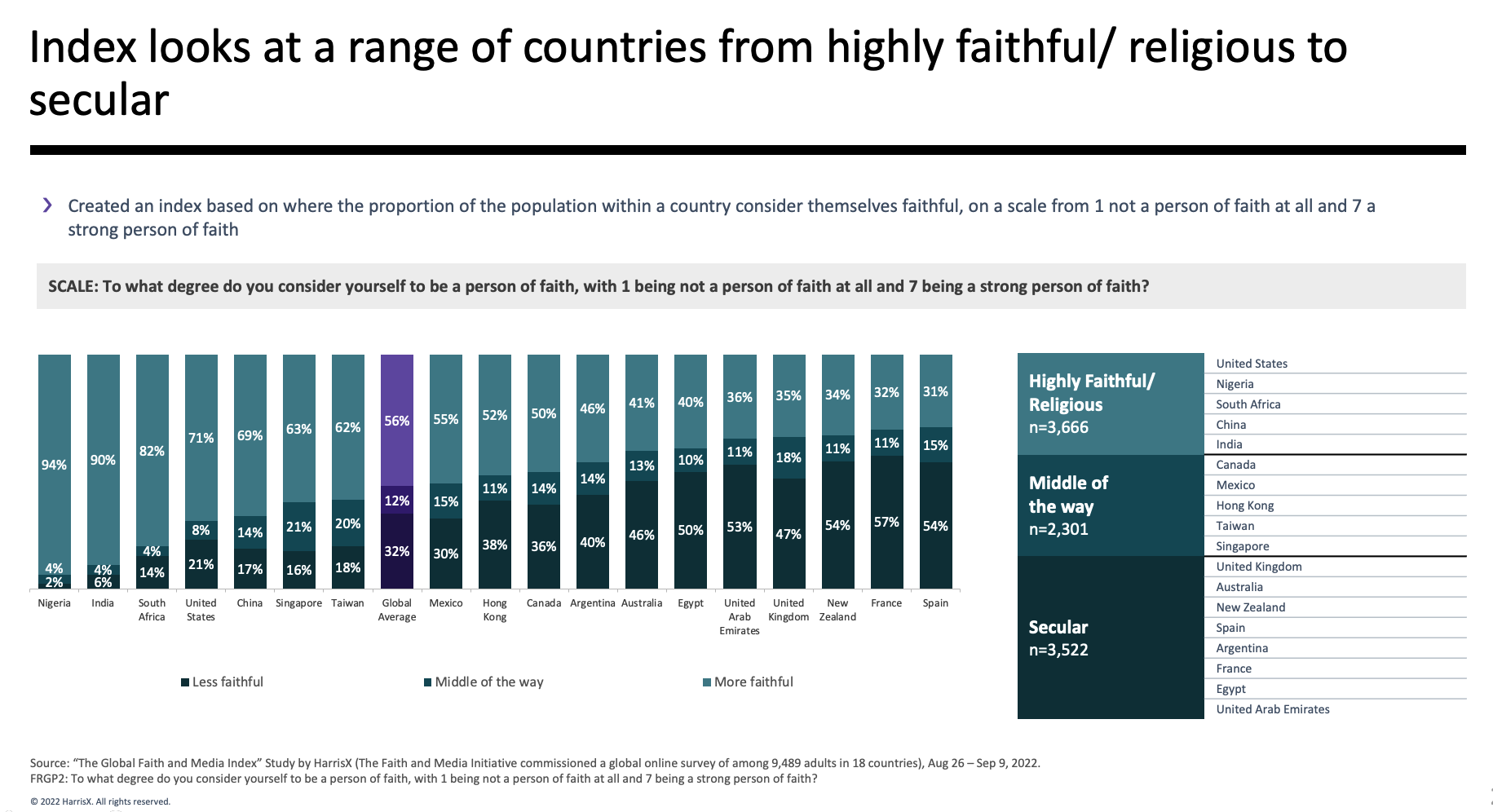
The above data does not shed light on the religiosity of people from different religions. For this reason, an additional data analysis was performed on the HarrisX data which is being reported here.
Religiosity amongst people of different faiths
People following Hinduism, Buddhism, Protestant Christianity and other denominations of Christianity were amongst the most faithful groups (89% to 78% more faithful, respectively, Fig. 2). Sunni Muslims and Anglicans consider themselves less faithful (51% and 37% as more faithful and 40% and 37% as secular, respectively).
Sunni Muslims were less faithful compared to other Muslims.
People from Dharmic faiths (Hinduism and Buddhism) were more faithful compared to respondents from three Abrahamic faiths.
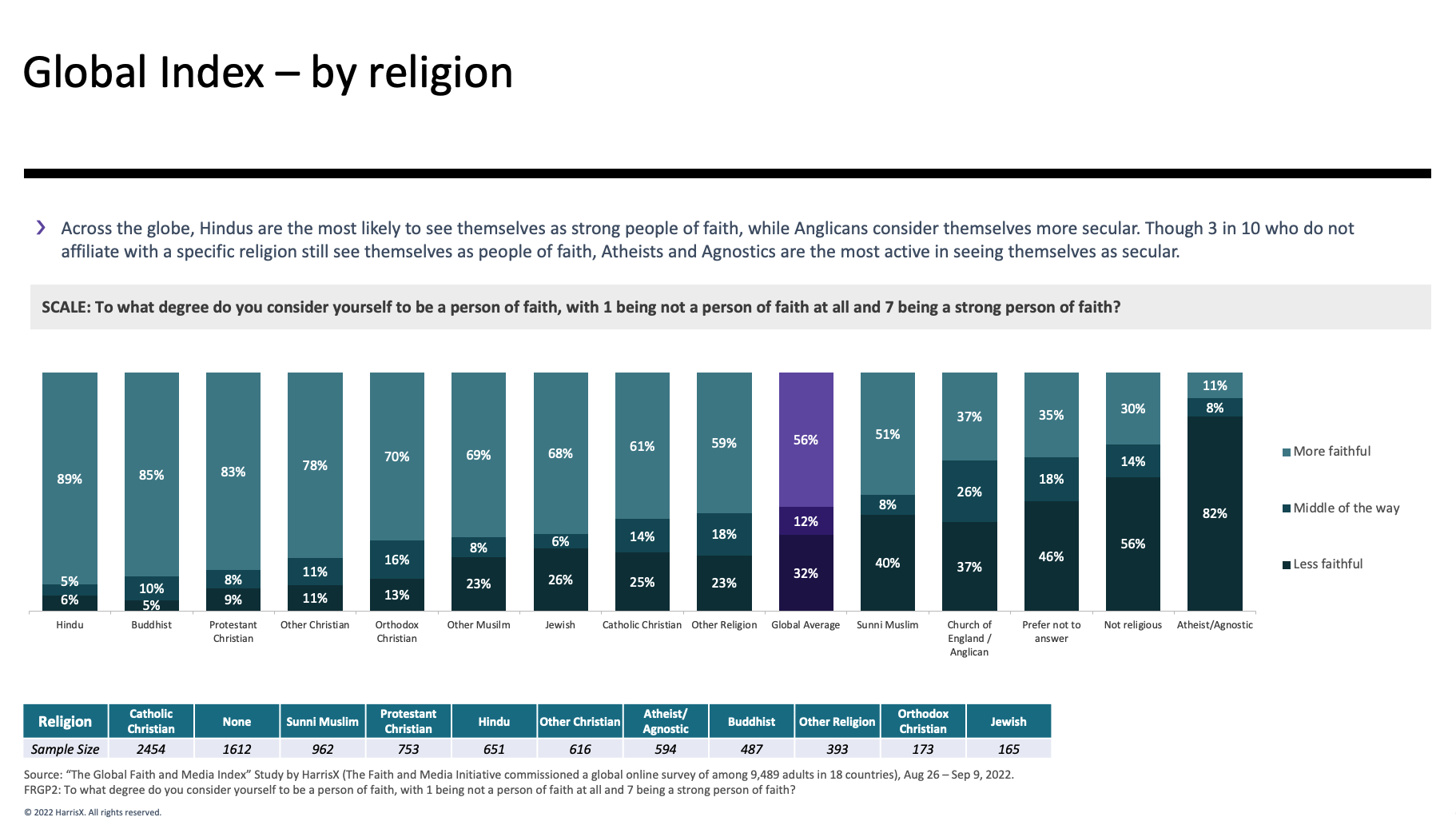
Religiosity in the USA
Compared to some Muslim majority countries (for example: Egypt 40% and UAE 36% faithful people, Fig. 1), 95% of American Muslims considered themselves more faithful (Fig. 3). Protestant Christians and Jews also considered themselves faithful (89% and 75% more faithful).
Thirty one percent of Americans considered themselves as atheist/agnostic, other or not religious. Number of people who considered themselves as atheist/agnostic were 9% in this HarrisX survey, compared to 4% as atheist and 5% as agnostic in the 2018-2019 Pew Research Center survey.
There were not enough Hindus included in this survey to be listed in the data.
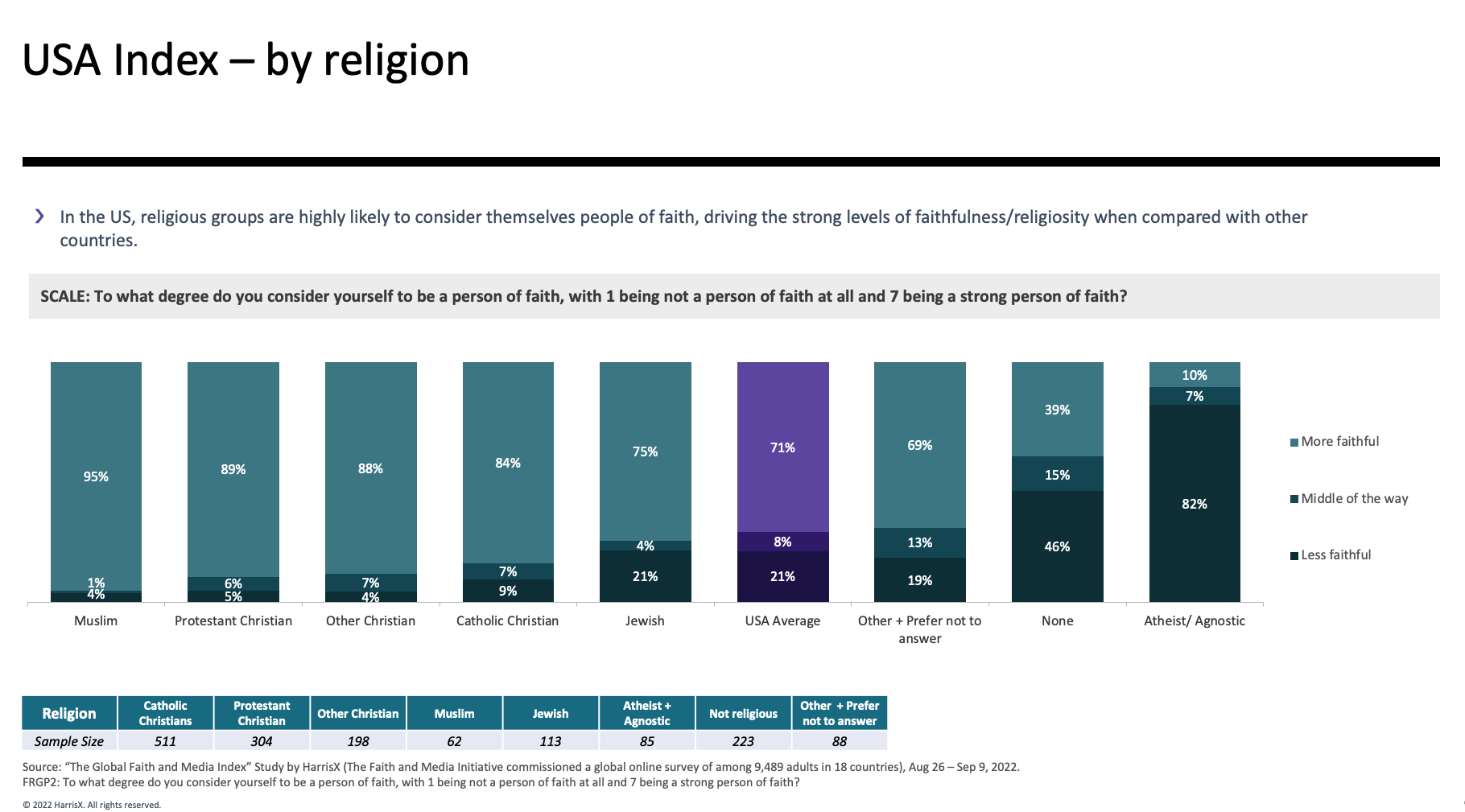
Religiosity in UAE
The UAE’s large Muslim population considers itself more secular relative to the global average, while the Christians in the country are more likely to identify themselves as people of faith (Fig. 4).
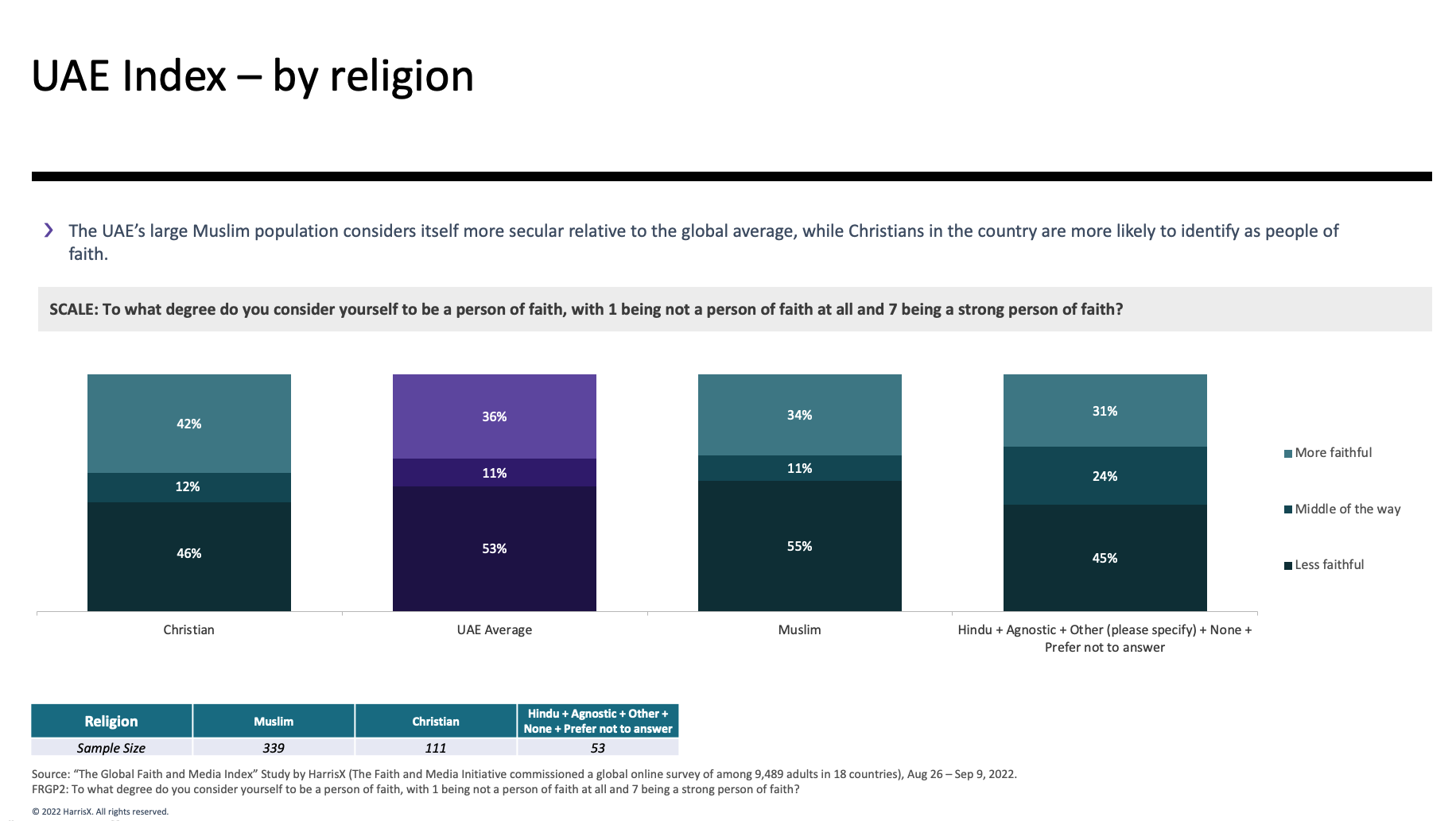
Religiosity in India
India is amongst the most faithful/ religious countries, driven by its Hindu and Muslim population who identify strongly as people of faith (Figs. 1 and 5). These results are comparable to findings in the 2019-2020 Pew study where Indian Muslims and Hindus had stated that religion is very important in their lives (91% and 84%, respectively).
Globally, 89% of Hindus and 51%-69% of Muslims were more faithful (Fig. 2).
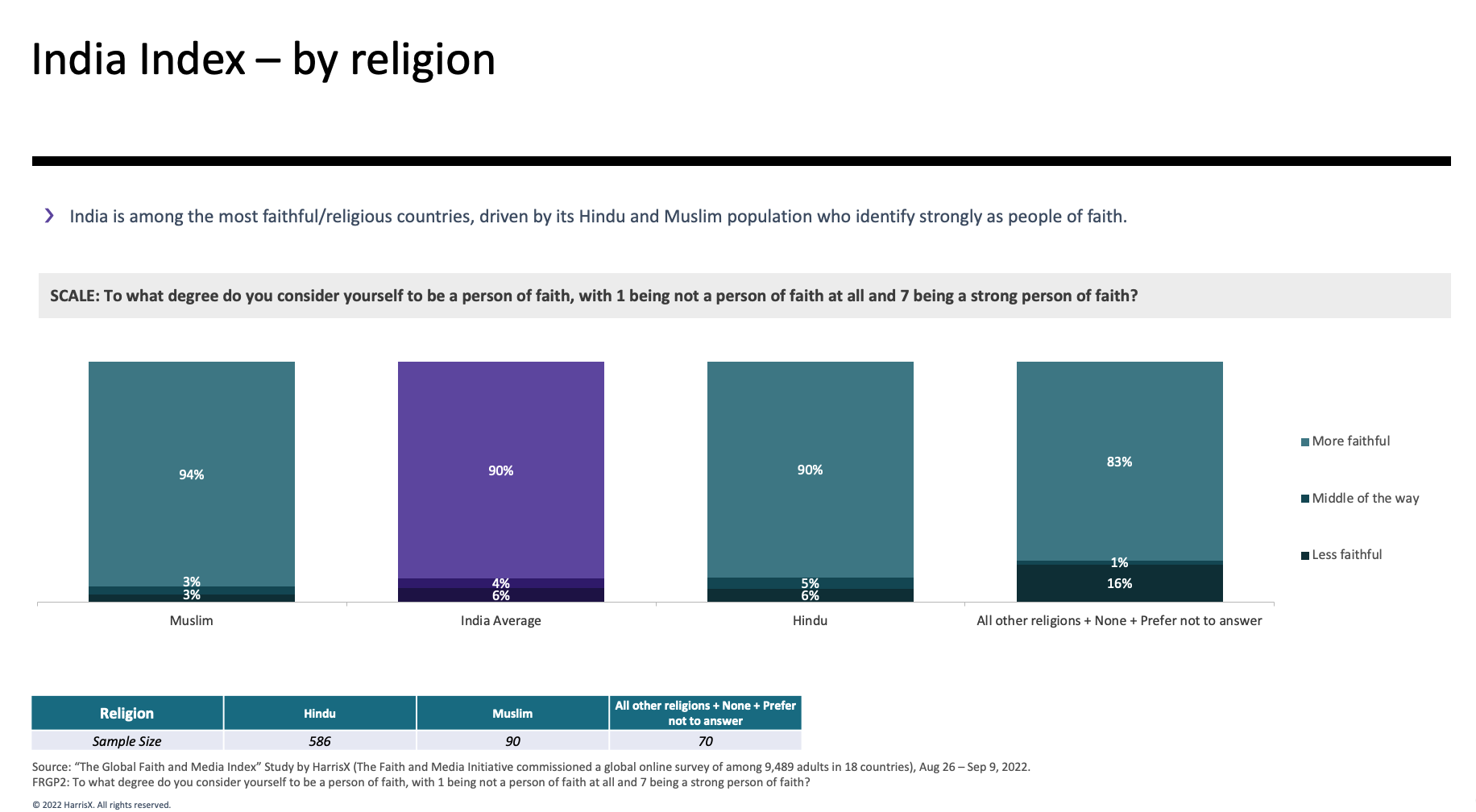
Author’s personal reflections on Media & Hinduism
The following concerns, as reported by The Global Faith and Media Study are even more relevant to Hinduism:
- 61% say the media perpetuates faith-based stereotypes
- 53% believe the media actively ignores religion rather than appropriately addressing it
- 43% believe today’s media coverage of religion creates unease and anxiety; even more so in highly religious countries.
In India, I have observed that most Hindus are proud to declare themselves as secular. Many might want to give the impression that they believe religion is only for the old people, retired and with nothing else to do but to devote themselves to rites and rituals. A lot of college going Hindus take more pride in celebrating Christmas and Valentine Day than Diwali. Does this mean Hindus are not religious?
Above observation is probably due to media and Bollywood (Indian film industry) influences. As per study conducted by an IIM (Indian Institute of Management Study), Bollywood should be held responsible for perpetuating an image of Hinduism which is narrow-minded, conservative and discriminating.
For these reasons, even a Hindu youth wearing a Raksha bandhan thread on his wrist or praying for God’s blessings before a critical exam in school/college/university will not want to admit in public that he/she is religious. Because of the media influence, it is cool to be secular!
The reality, as per the Pew study is that most Indian Hindus pray daily (59%) and perform puja rituals daily (57%), either at home or at a temple.
In America, Hinduism has been boiled down to Caste, Currey and Cow. Watching any news about Hinduism makes me nervous because I expect some derogatory information to be presented. Media tends to steer young minds away from the true goodness of religions in general and of Hinduism in particular.
In addition, academia invariably steps in to join the ranks with the media and the film industries. I feel American universities are sponsoring a new type of racism. Cal-State has established policies to increase liability of my great grandchildren just for being a person of the Hindu heritage. Anyone trying to defend Hinduism or talk positively about the faith is automatically being labeled as Hindutva.
Hinduism is the oldest surviving indigenous religion and without any central authority to protect it. Despite 1000 years of being ruled by Muslim and Christian colonists, Hinduism survived on its own merits.
In the wake of all the negative vibes being created about Hinduism by the media, this HarrisX study gives a much-needed breather. It goes on to illustrate that Hinduism, as a way of life, is ingrained within the very DNA of its people and cannot be easily uprooted from their psyche.
Also read Hindus are not kafir.
Share your views below.



- FAMILY RSS
- TAGGED WITH:
- PROGRESSIVE CHRISTIAN
- PAGAN
- …MORE
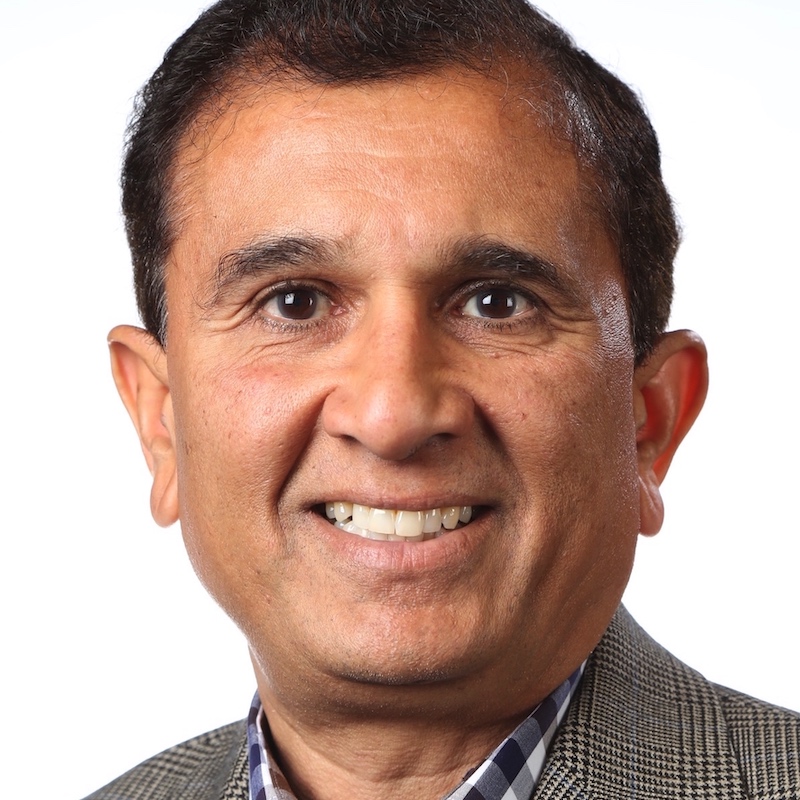
ABOUT DR. DILIP AMINDr. Dilip Amin is a Director of the Peninsula Multifaith Coalition of the San Francisco Bay area and a certified speaker at Islamic Networks Group. He is a Dharma Ambassador and on the Advisory Committee at the Hindu American Foundation. He is a jail chaplain. Dr. Amin has co-authored the book Hindu Vivaha Samskara. He founded the web forum InterfaithShaadi.org and guided 1200 youths and summarized his experiences in the book–Interfaith Marriage: Share & Respect with Equality. He is also the founder of HinduSpeakers.org. You can read more about the author here.

